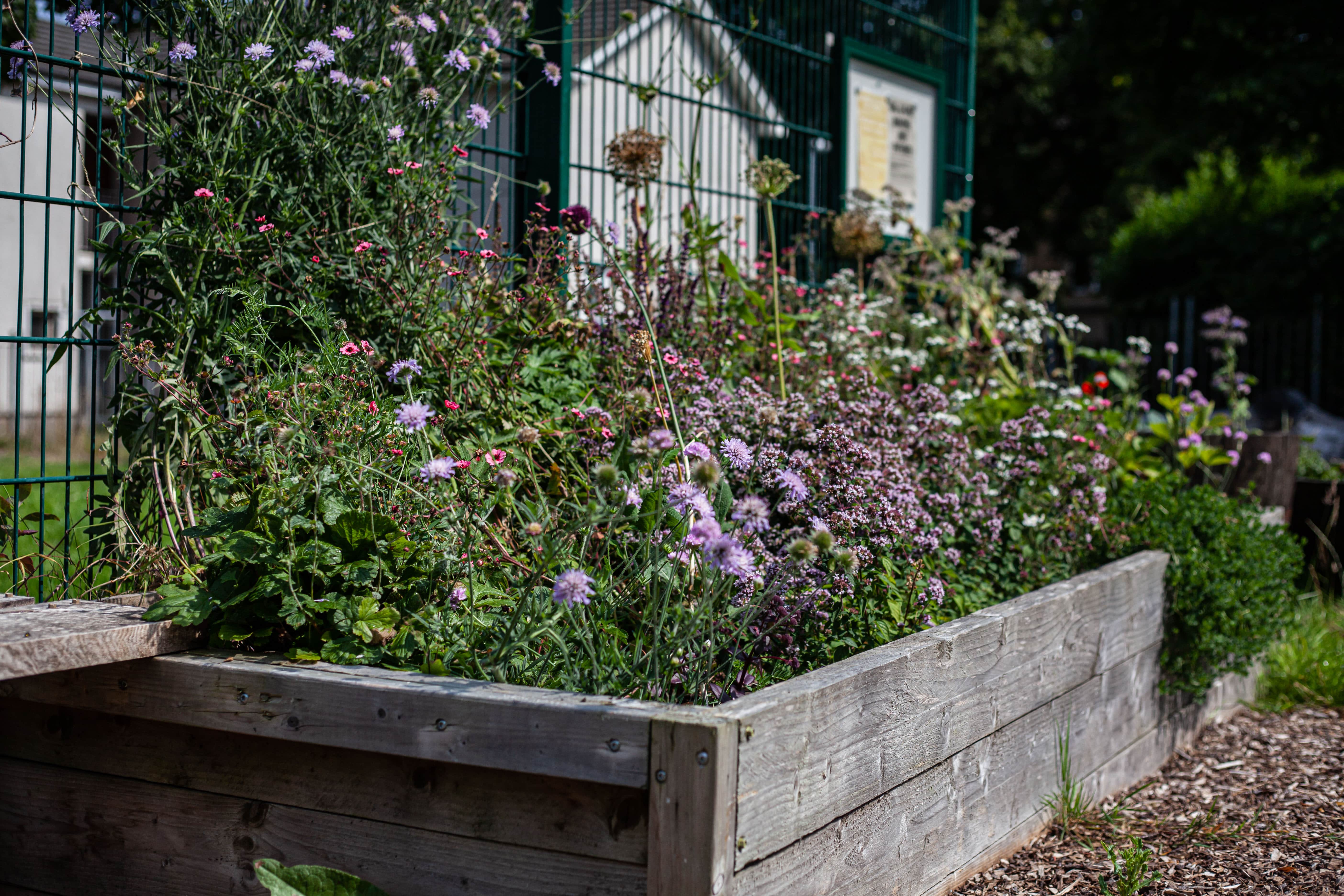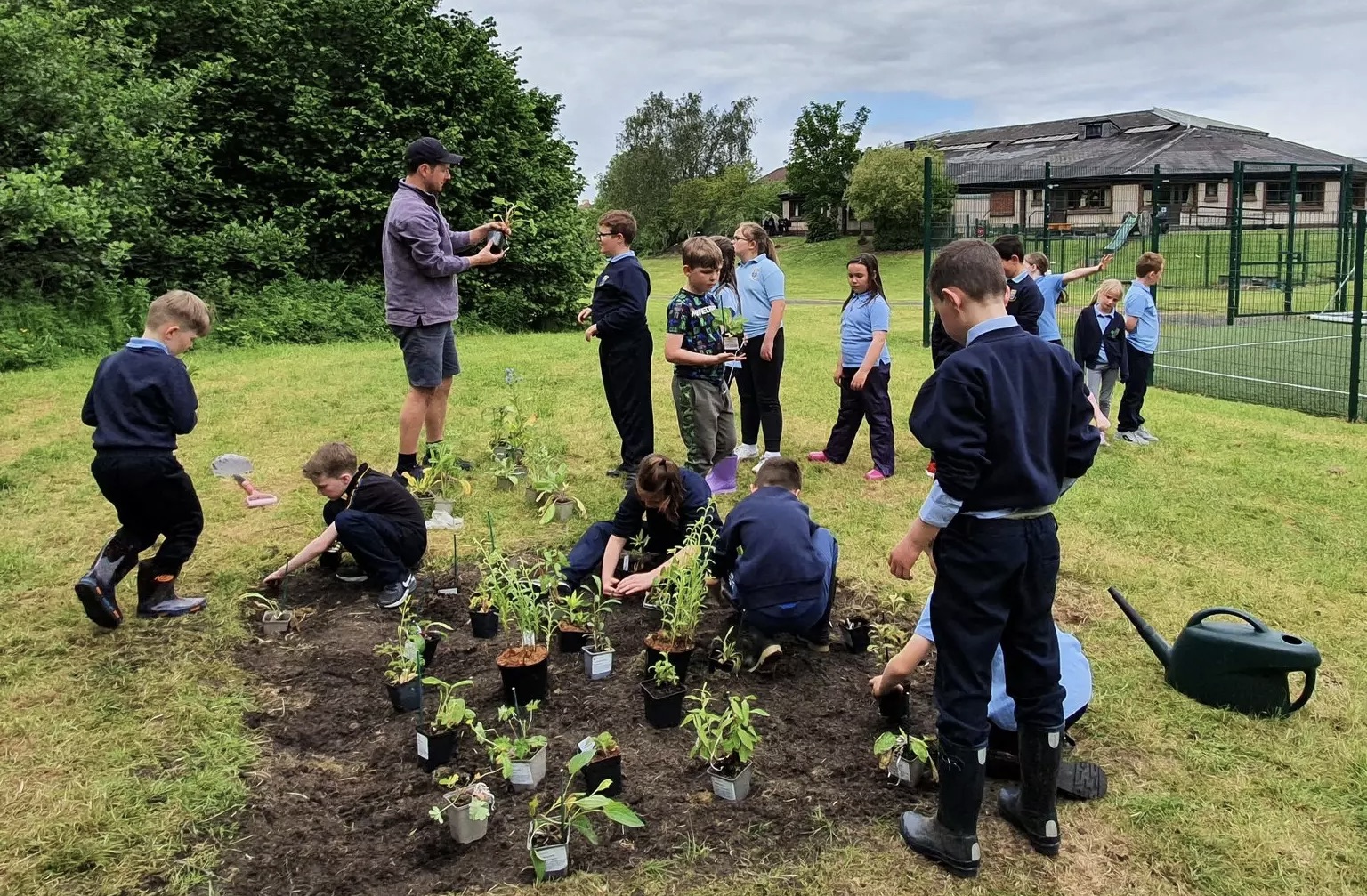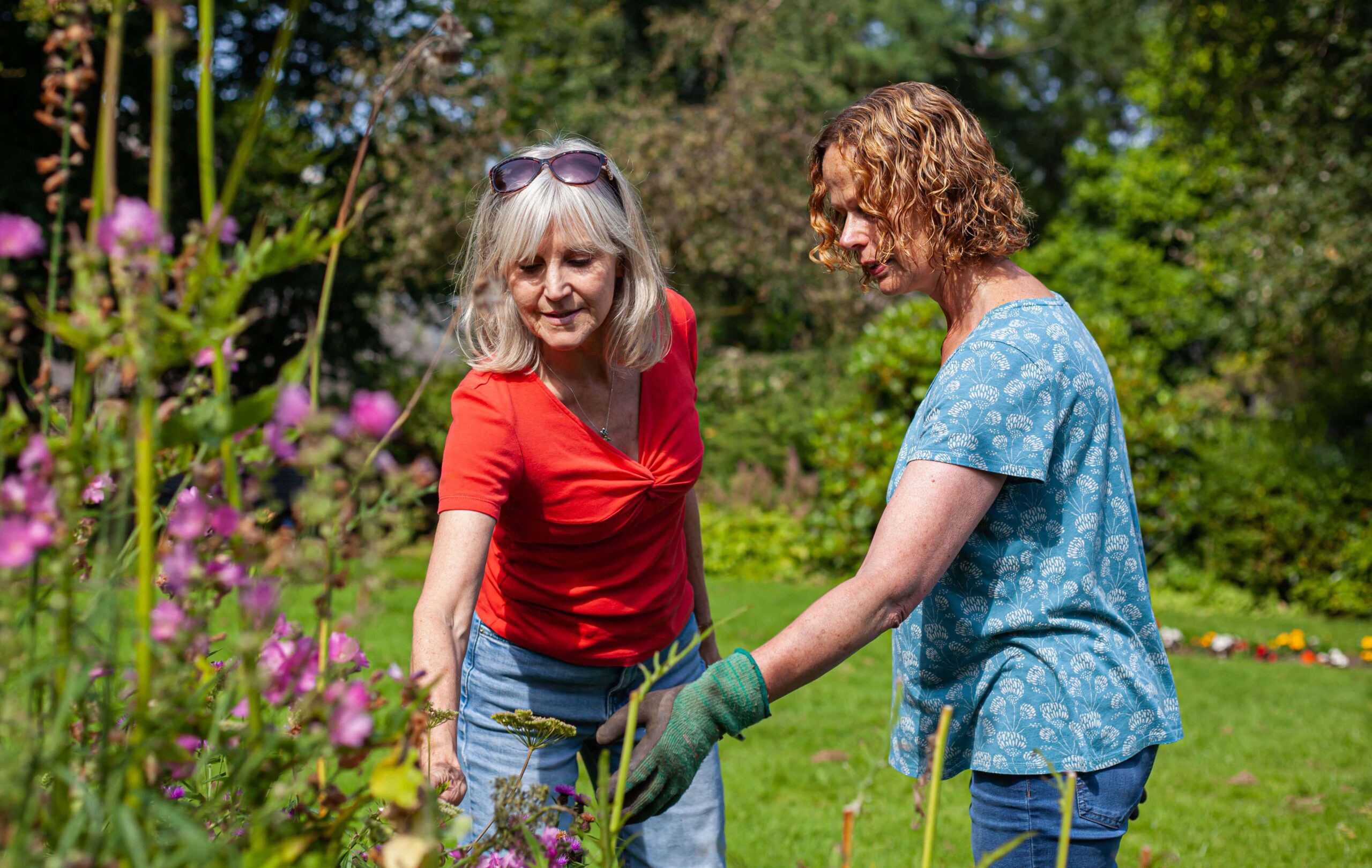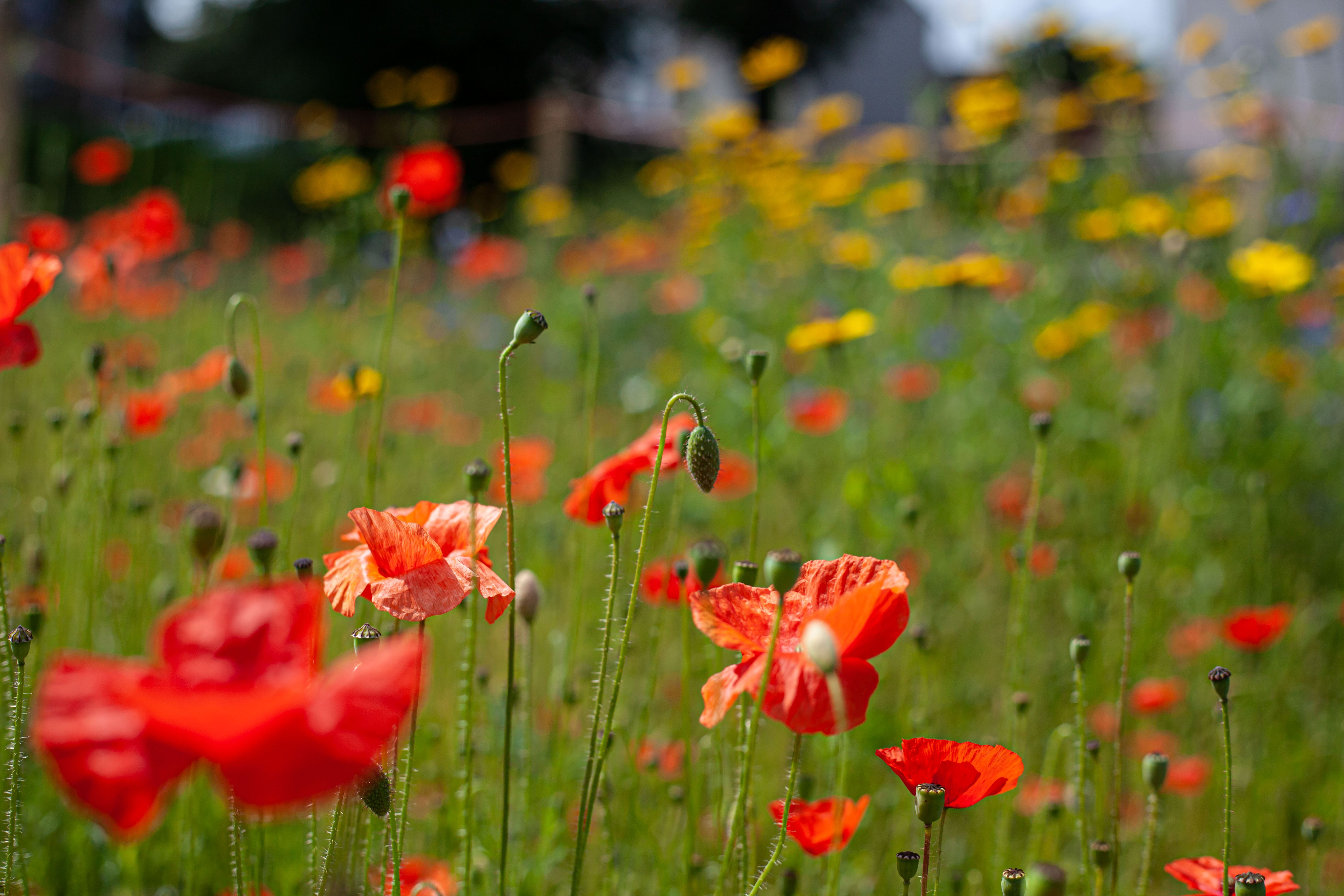
Our purpose is to improve prospects for Scotland’s pollinators through practical action
How can we do this?

DESIGN and BUILD spaces for pollinators to thrive; working with businesses, local authorities and community groups. Each space is different and designed to cater for the specific environment it sits within. This will ensure the longevity of these spaces and the wildlife they support.
Building networks between likeminded groups acting as a point of contact for those working towards a shared aim of protecting pollinator populations.
Selecting a carefully chosen range of trees, flowers, herbs and shrubs and enriching biodiversity as much as possible, with a special focus on pollinators. We hope these spaces will be enjoyed by people and pollinators for many years to come.

EDUCATE the public on the environmental importance of pollinator diversity, and how we can all help protect them.
Offering a learning environment for all types of organisations to build knowledge and awareness of the importance of pollinators and how we can all take action to protect them.

ENGAGE with local and national governments to help develop strategies and guarantee a future for all of us.
Working with public and private organisation to help them maximise the biodiversity value of their land as part of their Corporate Social Responsibility obligations.

SUPPORT scientific research around the protection of the environment. We will not only help to fund this research, but we will promote and implement its findings.
Check out our completed projects in the ‘Our Work’ section!